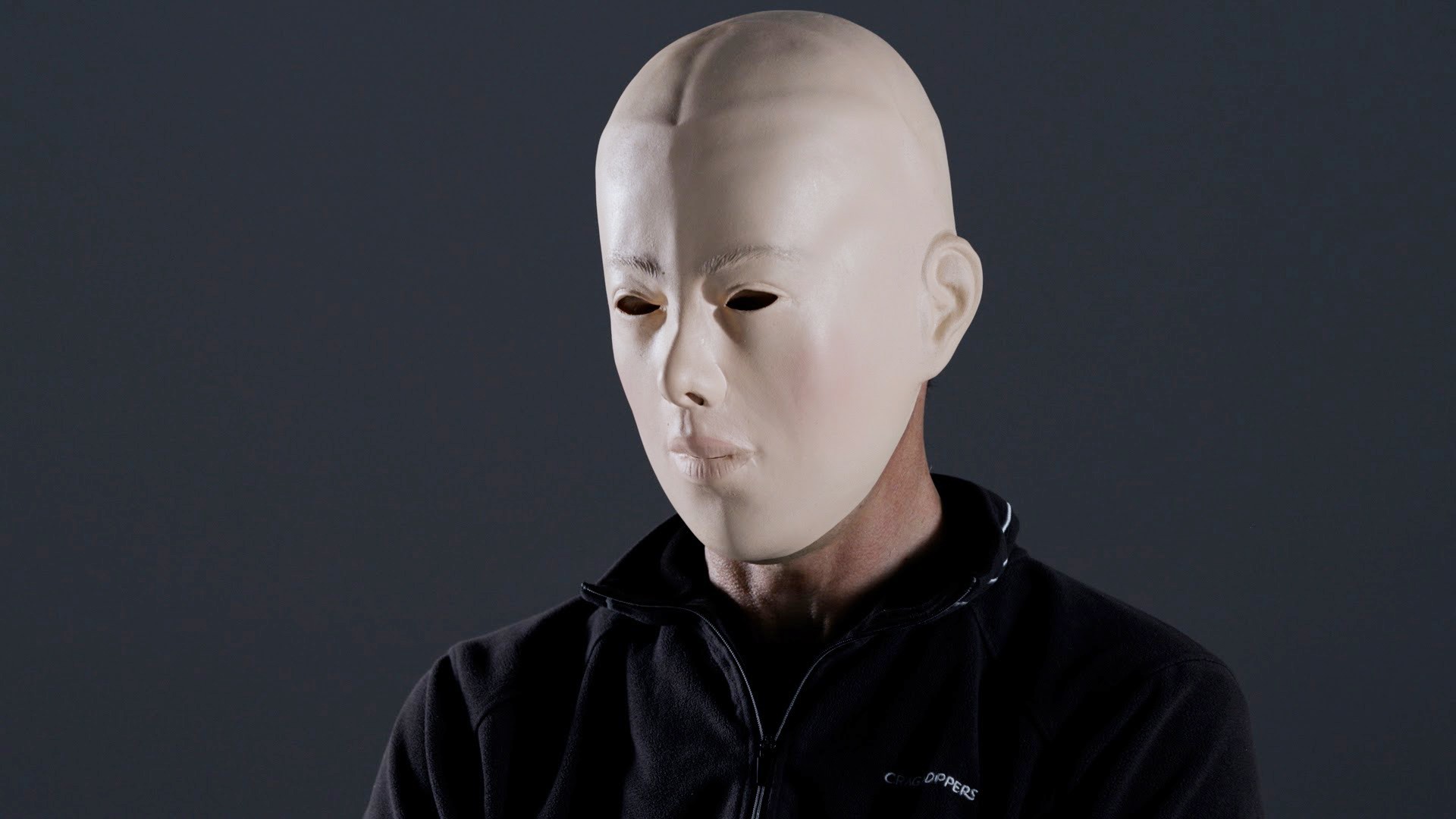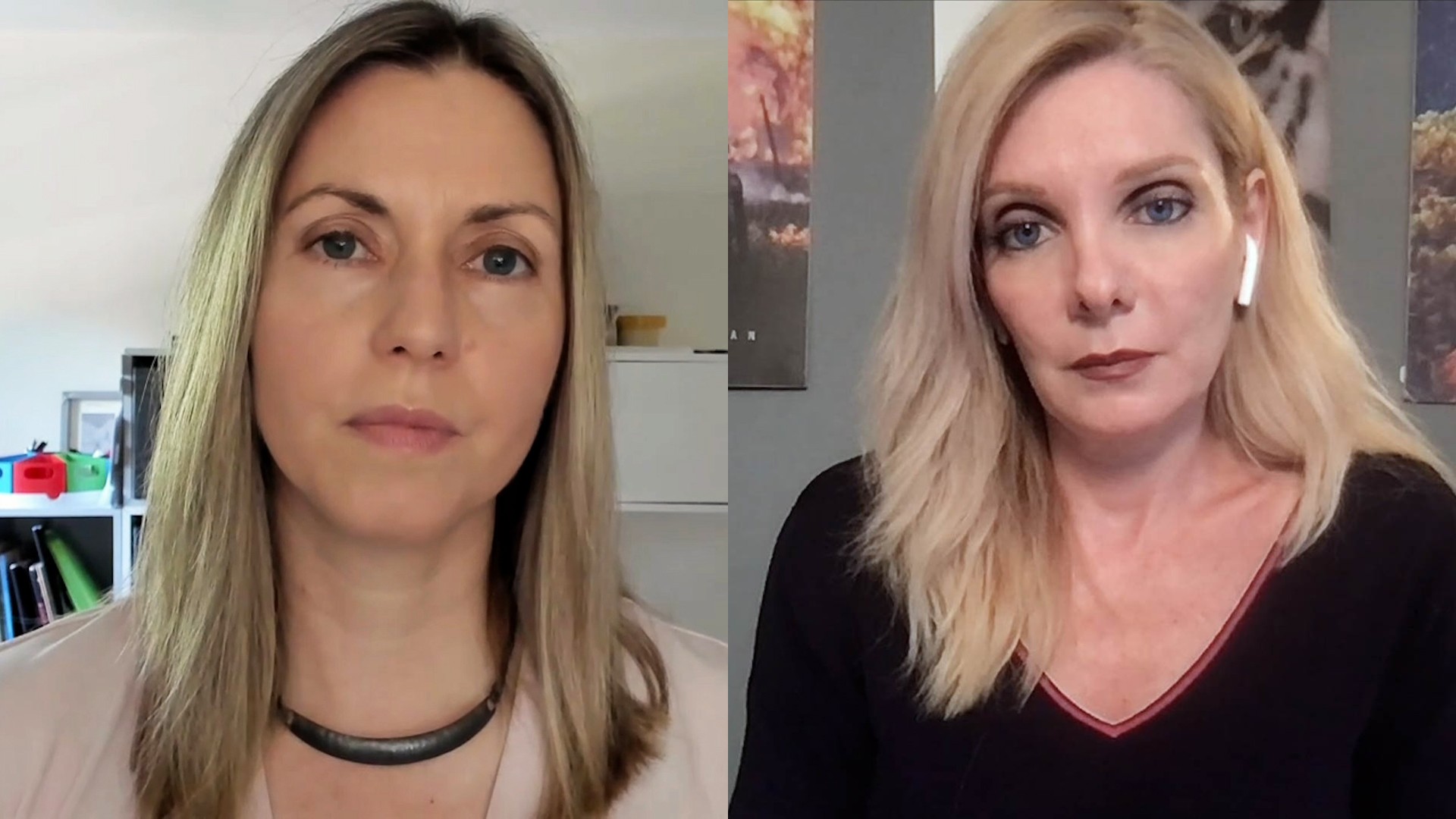The Dangerous World of Anti-Vax Vegans
Protestors opposed to COVID-19 vaccine mandates and vaccine passports at a rally in New York City. (Photo by Angela WEISS / AFP)
When Glynn Steel, 54, lay dying from severe COVID in a Worcestershire, UK, hospital, he begged nurses for the vaccine. His last words to his wife Emma were: “I have never felt so ill; I wish I’d had the vaccine.”
But it was too late. After nearly a month in ICU and being induced into a coma, he died in November.
“It was heart-wrenching,” Emma told the Daily Mail.
Advertisement

Steel, a vegan, had originally decided against getting vaccinated because the vaccines, like most medications, were tested on animals. His case exposes the worrisome, and at times fatal, consequences of anti-vax thinking playing out among a small but influential group of vegans on the internet who are exploiting the reasons many people go vegan to guilt others out of getting vaccinated.
Like Steel, some have concerns about animal testing. But others promote the false idea that vaccines are harmful, and that a vegan diet alone can protect people from illness. Often, they promote the idea of “natural living,” which, to them, precludes the use of vaccines. It’s a seemingly unlikely, but very real intersection between veganism—a movement once associated with the left—and far-right conspiracies.
One high-profile vegan compared vaccine campaigns to the exploitation of livestock, and said in a Facebook video he rarely gets sick because his diet builds his immunity. When he does get sick, he said, it’s his body’s way of “detoxifying.”
Another influential vegan, a naturopath with 111,000 subscribers on YouTube and who has been featured in vegan documentaries, has spewed anti-lockdown and anti-vax ideas across YouTube and BitChute, a site known for far-right content. In a BitChute video viewed nearly 14,000 times, the vegan said vaccines cause COVID and calls them a “useless piece of crap.”
Advertisement
Another popular vegan blog warns against the “cruelties” and “dangers” associated with vaccines, and includes triggering language about animal testing while admonishing “vaccine-believing vegans.”
These emotional appeals that target vegans actually allow anti-vaxxers to “sidestep science,” said Timothy Caulfield, a University of Alberta law professor who researches health misinformation. “Anti-vaxxers are gravitating to veganism as a justification for not getting vaxxed; it becomes a ‘noble’ cause or reason to not get vaccinated.”
Some people are even pretending to be vegan in the hope of avoiding vaccines altogether. After experts in the UK speculated that employment law could exempt vegans from compulsory vaccination mandates at work, non-vegan anti-vaxxers started to falsely identify as vegan. “We’re all vegan now,” says one banner released by a far-right political party in the UK.
“There’s a real irony here because getting a vaccine is an incredibly virtuous act—you did it not just for you and your family but for your community and the healthcare system,” Caulfield said. Besides, “being a healthy person makes you way more likely to be able to advocate on behalf of animals.”
There’s actually no debate: vaccines work. People who’ve caught COVID-19 after receiving two vaccine doses have reported significantly milder symptoms and vastly lower hospitalization rates than people who haven’t been vaccinated.
Advertisement

“We have a tremendous amount of data on the efficacy and safety of vaccines… They’re the most important tool in our fight against the pandemic,” Caulfield said.
Unfortunately, anti-vax sentiment unfolding on various vegan social media sites, at conferences, and among alleged anti-vax vegan celebrities like Russell Brand, Alicia Silverstone, and Kat Von D, is also threatening veganism’s reputation, which is already stereotyped for being “woo-woo.”
“There’s no research to indicate that the percentage of anti-vaxxers or conspiracy theorists is any higher in the vegan community than it is in the general population,” said Christoper Sebastian, a vegan digital media researcher and animal rights scholar. “However, even if that percentage is consistent, they have the potential to do outsized reputational damage to the vegan movement.”
Influential vegans who spread anti-vax beliefs could cast vegans as a whole in the same category as flat-Earthers or COVID deniers, despite the fact that people go vegan for a number of reasons, Sebastian said.
Anxiety about vaccines and how they relate to the way we treat animals isn’t new. The smallpox vaccine was produced in 1840 by extracting lymph containing white blood cells from calves. Because of that, vegetarians and animal rights activists were behind some of the biggest anti-vax movements at the time.
Advertisement
A scroll through the comment section under a vaccine-related post on the PlantBasedNews Instagram account, with 1.2 million followers, reveals an onslaught of anti-vax sentiment, some made by people with upwards of 15,000 followers.
“It seems like it’s coming from everywhere and nowhere at the same time because it’s so difficult to track,” Sebastian said. “There are dozens of memes of people who are vegan who peddle [anti-vax ideas], espousing the wildest conspiracy theories.”
Vegans with huge followings who don’t take a stance at all also contribute to the problem, according to Sebastian.
To be clear, most vegans are not anti-vax. A recent study found that as of December 2021, 87 percent of vegans in the UK had received at least one dose of a COVID-19 vaccine—a higher proportion than the general population. Many vegan societies also explicitly acknowledge it’s near impossible to avoid all animal-based products or services, and have proactively addressed concerns around animal testing and COVID vaccines.
Laura Wright, a professor with the Western Carolina University who wrote a foundational textbook on vegan studies, said she understands the concerns around animal testing and vaccines, but the anti-vax trend in veganism is “baffling and perplexing.”
“Ethical vegans and people in my camp would do anything we can to protect other people. I would get vaccinated not only for myself but because it would lower the risk of me infecting people I care about,” Wright said.
Follow Anya Zoledziowski on Twitter.


